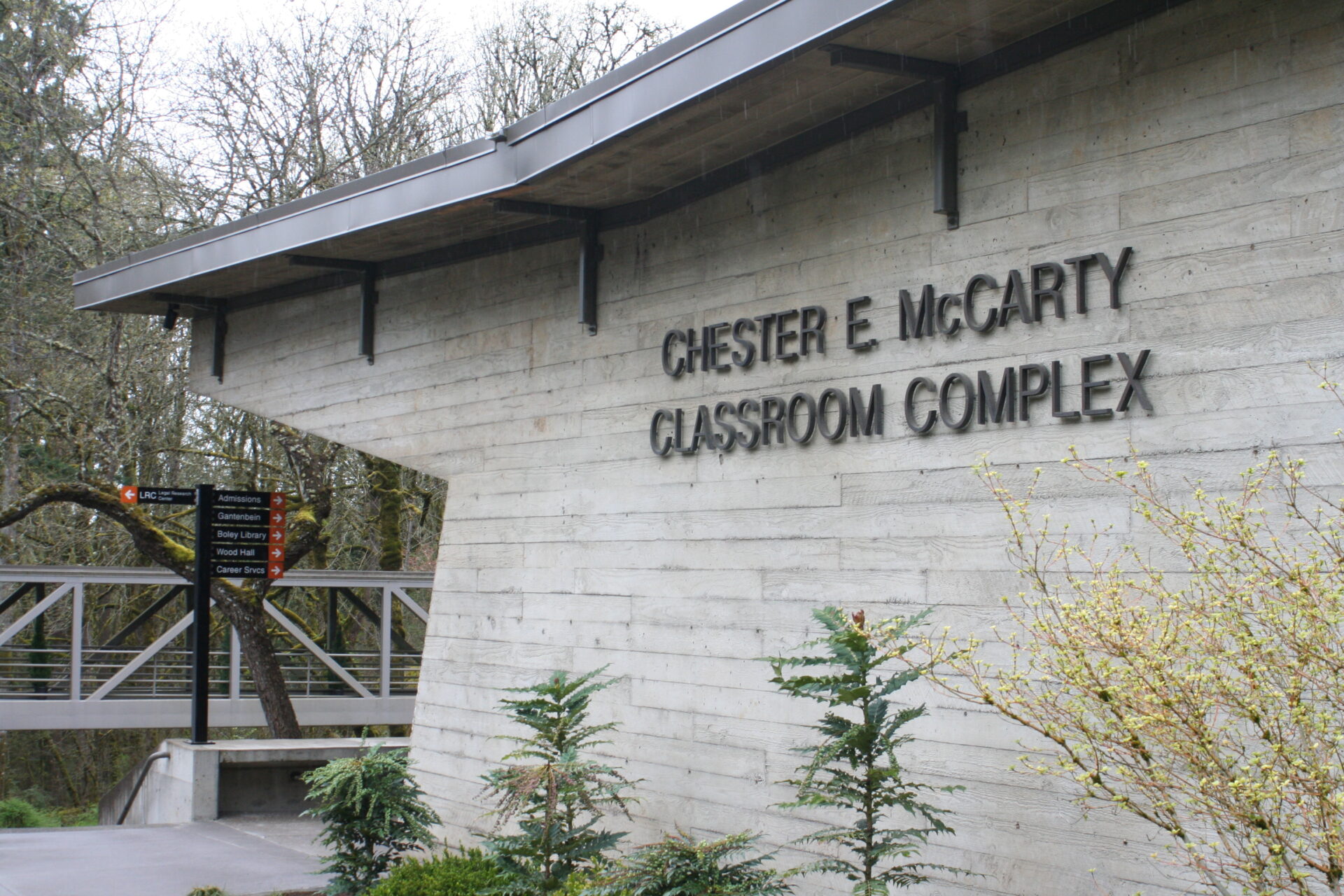
The Lewis & Clark Law School is commemorating 50 years of environmental law with moderated panels and guest speakers.
The anniversary celebrations will include the yearly environmental conference on March 13, which will focus on the connection between food and climate change. The college began its celebrations early with events last year.
In 1970, at the start of the environmental movement, LC published the first law review in the country dedicated to environmental law. The publication is attributed to being the official launch of the program, which is now ranked number one in the nation.
The program continuously expands its curriculum in an effort to provide a number one ranking legal education, thus benefiting the students’ and the future of the planet.
“We need to make sure we remain active; use our talents whether that’s in law or science to be advocates for the environment, and for the people, animals, and plants who live in those environments,” said Professor of Law and Counsel Christopher Wold. “We can’t just wash our hands and say maybe Greta (Thunberg) will take care of it for us.”
Wold graduated from the law school in 1990 and returned in 1994 as a professor, creating the international Environmental law component of the program. He is the founder of the law school’s International Environmental Law Project and teaches Ocean and Coastal Law.
Janice Weis is the associate dean and director of the environmental, natural resources and energy law program at LC. She has been at the law school for 26 years after practicing environmental law in California. Weis attributes the program’s success to the faculty, as well as to LC’s location.
“Portland and Lewis & Clark have a special place-based relationship that I think really enhances environmental studies at all levels,” She said.
Portland is considered one of the greenest cities in the United States. Oregon itself is ecologically diverse. The state’s unique ecosystems inspire a culture centered around the environment.
Last week, to kick off events this semester, a panel with Professor of Laws and Director of the Centre on International Courts and Tribunals at the University College London Phillipe Sands was held on Zoom. The presentation was on Feb. 3 and moderated by Wold.
In the panel, Sands discussed his new book, “The Ratline: Lies and Justice on the Trail of a Nazi Fugitive,” released on Feb. 4. Sands’ book focuses on Otto Wächter, an Austrian politician and member the Nazi Party, who famously disappeared for four years and reappeared dead. It also details Sands’ legal experience with genocide and crimes against humanity.
He is also taking strides to advance environmental issues into the legal sphere.
“You can see the (environmental) connection in the two books I’ve written and another activity I’m engaged in right now,” Sands said. “I’m chairing an international working group developing a new crime called ecocide.”
Ecocide is defined as a willful act of destruction of nature. As part of the Stop Ecocide Foundation, Sands hopes to follow in the footsteps of Hersch Lauterpacht and Raphael Lemkin, the lawyers who developed the term “crimes against humanity.”
Environmental law is a growing field and is becoming more relevant given the developments brought about by climate change and globalization. Because of this, Weis looks forward to the program developing.
“We’re really calling this the next 50 years,” Weis said. “That’s the best way to look at an anniversary. ‘Well that 50 years was great! What’s next?’”
Subscribe to the Mossy Log Newsletter
Stay up to date with the goings-on at Lewis & Clark! Get the top stories or your favorite section delivered to your inbox whenever we release a new issue.

Leave a Reply